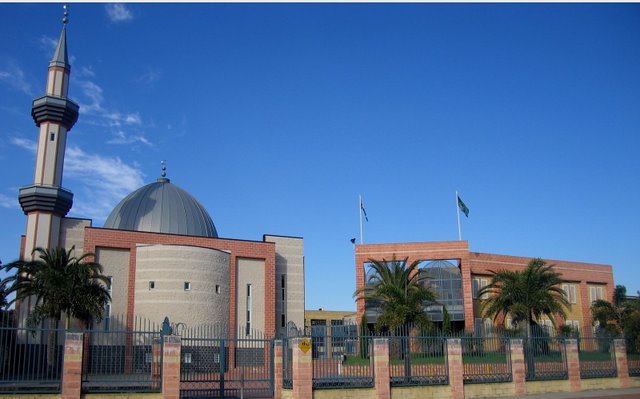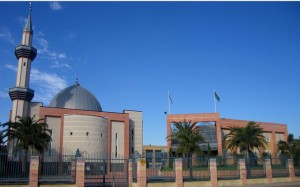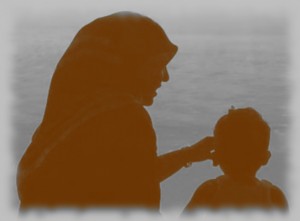
May 30 2010
The Islamic Schools Association Of Australia or ISAA (formerly ACIES)is the peak body representing Islamic schools in Australia and Alhamdulilah a growing number of schools across Australia is on board. ISAA seeks to lobby and represent Islamic schools and the Independent schools sector in general. ISAA sits on a number of state and federal consultative committees and we are a true voice in the decision making processes affecting education for not only Muslim children but all Australians. The Independent schools sector is the fastest growing schools sector in Australia and Islamic schools are amongst the fastest growing within that sector. A number of school principals and/or their representatives recently met at Arkana College and drafted a policy statement on behalf of NSW and QLD schools. If your child attends an Islamic school urge your school to be a part of ISAA. ISAA is represented in NSW by Mr. Osman Karolia, principal of Arkana College and the national President is Mr. Abdul Karim Galea Head of the Australian International Academy, Melbourne Senior Campus.
POLICY STATEMENT OF ISLAMIC SCHOOLS ASSOCIATION OF AUSTRALIA (NSW CHAPTER)
MAY 2010
NAPLAN Testing
- Broad support for NAPLAN exams which provides important information on students to meet national minimum standards in literacy/numeracy. Tests provide a gauge as to the general understanding in the areas of literacy and numeracy.
- NAPLAN tests identify student areas of concern or weaknesses and allow parents and teachers to support and reinforce students where necessary.
- Reflect on the child’s achievements and allow for the planning of future study requirements (including the planning for selective classes or schools NAPLAN results can identify precisely where learning is successful and less successful and teachers can program accordingly
- There is concern at the widespread pressure on students, staff and resources associated with NAPLAN exams, it is up to school heads to ensure that NAPLAN is presented as a general assessment which is reflective of general performance and not an assessment designed to rank and compare the results of individual students, staff, classes and schools. Ultimately school heads will prepare and educate their school communities.
- The majority of schools are opposed to dedicating an entire term or block of time dedicated solely to preparing students for NAPLAN and making students attend after school or weekend NAPLAN classes. This is against the philosophy or intent of NAPLAN, places immense stress on students, staff and resources and compromises delivery of the curriculum.
- A small number of schools support NAPLAN preparation classes on weekends and after school as they feel the My School website and media constructed leave them no option as parents and other stakeholders expect to see results at the top end. ISAA’s position is that this is a matter for school heads and their management team.
- Islamic schools are concerned at the poor security of the NAPLAN procedure and the credibility of NAPLAN will be under question until such time that there is independent distribution, monitoring, supervision and collection of NAPLAN exams. With such public scrutiny some schools have resorted to unscrupulous practices as revealed in recent media reports, this remains a valid concern and will need to be addressed.
- There is concern at what is regarded as poor implementation by authorities. More material is required from ACARA to schools to distribute to parents informing them on the aims and objectives of NAPLAN and that it is not a competition between individual students and/or schools.. Information to parents must include comment on the broader role of schools including values programs, pastoral care and extra curricular activities so that parents do not judge schools merely on NAPLAN results
- More emphasis needs to be placed on results from NAPLAN to show progress of a student rather than just academic results. This type of information must be more explicitly conveyed to parents when authorities distribute information to parents.
- Schools want clear statements on any potential link between NAPLAN results and future funding arrangements
My School website
- Islamic schools acknowledge that as fee charging schools who are recipients of government funding , independent schools must be accountable for the education that they provide. Islamic schools support the My School website but are concerned that ranking of schools can be misleading and harmful and have a negative effect on individuals, schools and communities who are trying to make a positive difference to disadvantaged students.
- Data and other measures should not be used to create simplistic league tables that may trivialize student achievement and create misleading comparisons
- Islamic schools call for a review of the Index of Community Socio – Education Advantage (ICSEA) measurement as it is too broad in it’s scope and assumptions. As a result the similar or like school comparison has threatened the credibility of the My School site.
- Islamic schools support the My School website providing more information regarding the schools funding and resources. There are enormously differing levels of resources available to schools both public and private and it is important that these are made transparent. Islamic schools almost without exception serve largely disadvantaged communities yet they perform relatively well, it’s important that this information is apparent.
- There is widespread concern over the use and future implications of ICSEA measurements and their potential link to funding
Chaplaincy Program
- The National School Chaplaincy Program aims to support school communities that wish to access the services of a school chaplain or a religious figure in Islamic schools who assists school communities to support the wellbeing of their students, including strengthening values, providing greater pastoral care and enhancing engagement with the broader community.
- Chaplains provide general personal and religious advice, comfort and support to all students and staff, regardless of their religious denomination, irrespective of their religious beliefs. Parents and students are informed about the availability and non-compulsory nature of the chaplaincy services.
- Islamic schools consider the availability of school chaplains as invaluable in assisting with values education as well as integrating Islamic values with those values described as being Australian values
- The chaplaincy program has also been invaluable in terms of dialogue with other faith based schools and community organisations.
- The chaplaincy program has been instrumental in contributing toward social cohesiveness by school chaplains preparing students to engage with broader society
- The significant challenges endured by young people including the threat of drugs, alcohol, crime, unemployment, family breakdown, interpersonal relationships requires the presence of a chaplain to give guidance on essential matters thus further supporting the need for the chaplaincy program
- The chaplaincy program is vital in providing a moderate balance to young people who may be exposed to radical/extremist thoughts or propaganda. This is not an assumption but is a very real threat supported with hard evidence.
- Islamic schools are grateful that funding for the chaplaincy /pastoral care program was extended to the end of 2011, we would like to see funding extended beyond that so that chaplaincy is a service available to all schools in all sectors.
National Curriculum
- Islamic schools in principle support a national curriculum with national standards, outcomes and assessment criteria
- The national curriculum must have standard core content and achievement standards
- The national curriculum must be flexible enough to incorporate local content and cultural specific content to meet the needs of individual students. This includes accommodating concepts such as creation theory and traditional values in faith based school systems
- The national curriculum must facilitate the reporting of students’ results against achievement standards that are varied in their structure and approach across the different years of schooling.
- Islamic schools support a standard yr. 12 matriculation exams for all subjects that are the same for all children across Australia
- There is concern over a perceived drop in standards of primary mathematics and science courses
- Islamic schools favour the use of learning outcomes and scope and sequences as part of the delivery of a national curriculum.
- The national curriculum needs to be carefully considered and not be rushed in. Resources must be available and support offered during the early phases.
Social Cohesion
- Islamic schools reject the notion that faith based schools threaten the cohesiveness of society.
- Islamic schools like other schools across all systems have a number of activities that and programs that promote community values and engagement with all sections of the community including other faith based schools
- Thirty five per cent of all Australian children attend an independent or Catholic school, this number is growing rapidly and support of this sector is essential for strengthening social cohesion. This includes 18000 students who attend 31 Islamic schools in Australia. Islamic schools are amongst the fastest growing group in the independent sector and they play an important role in contributing toward social cohesion as well as promoting values that will enrich the social fabric of modern Australia.
- Islamic schools promote dialogue, social justice and charitable courses that benefit all Australians.
- Australians come from a broad range of cultural, religious, and linguistic backgrounds and Islamic schools both reflect and celebrates this diversity







